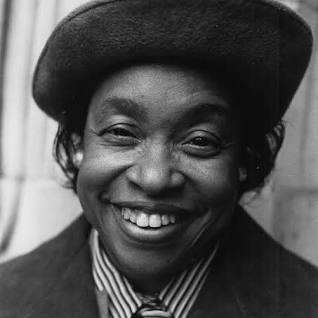Margaret Walker was born on July 7, 1915, in Birmingham, Alabama. She began writing poetry at age fifteen, when she entered college. She received a BA from Northwestern University in 1935 and an MA from the University of Iowa in 1940. In 1936, she joined the Federal Writers’ Project in Chicago, where she became friends with Richard Wright and joined his South Side Writers Group. In 1941, Walker became the first African American poet to receive the Yale Younger Poets Prize, for her debut collection For My People (Yale University Press, 1942). She was also the author of the poetry collections This Is My Century: New and Collected Poems (University of Georgia Press, 1989), October Journey (Broadside Press, 1973), and Prophets for a New Day (Broadside Press, 1970). Walker married Firnist Alexander in 1943, and together they had four children. In 1949, they moved to Mississippi, where she joined the faculty at Jackson State College. She returned to the University of Iowa for her doctoral studies and received a PhD in 1965. The following year, she published her dissertation as a novel, Jubilee (Houghton Mifflin, 1966), which was based on the life of her great-grandmother. In 1968, Walker founded the Institute for the Study of the History, Life, and Culture of Black People at Jackson State College. As director of the institute, which was later renamed the Margaret Walker Center, she organized the 1971 National Evaluative Conference on Black Studies and the 1973 Phillis Wheatley Poetry Festival. After Walker retired from teaching in 1979, she published On Being Female, Black, and Free (University of Tennessee Press, 1997), a collection of personal essays, and Richard Wright: Daemonic Genius (Warner Books, 1988), a work of nonfiction informed by her friendship with Wright. She died of cancer on November 30, 1998 in Jackson, Mississippi. Source

